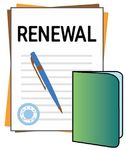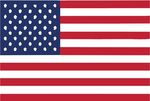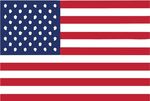U.S. Department of Homeland Security (DHS) "Public Charge" Final Rule
←
→
Page content transcription
If your browser does not render page correctly, please read the page content below
U.S. Department of Homeland Security (DHS) “Public Charge” Final Rule
The “Inadmissibility on Public Charge Grounds” rule was finalized by DHS on August 14, 2019. The rule will
become effective on February 24, 2020.
What is Public Charge?
• Public charge is a designation that immigration officials can give to an immigrant who is seeking to
change their immigration status if they determine that person is currently or likely at any time in the
future to become reliant on public benefits.
• Designation as a public charge can be grounds for denial of one’s lawful permanent residence (LPR, or
“green card”) application.
Who Would Be Impacted by this Change?
• Applications submitted on or after February 24, 2020 by the following categories of immigrant:
o Non-citizens applying for lawful permanent resident (LPR) status.
o Some individuals seeking an extension or adjustment of their non-immigrant status.
o Immigrants seeking admission to the United States.
o Family-based petitioners seeking to become LPRs.
Who Would NOT Be Impacted by this Change?
• U.S. citizens.
• Current lawful permanent residents and lawful permanent residents applying for citizenship.
• Asylum-seekers, refugees, self-petitioners under the Violence Against Women Act, and survivors of
trafficking.
• Undocumented immigrants and other categories of non-citizens.
What are the Benefits Considered for a Public Charge Designation?
• One or more of the following benefits received for more than 12 months in the aggregate within any
36-month period will be considered.
o Considered if received at any time:
▪ Cash assistance for income maintenance, including Temporary Assistance for Needy
Families (TANF, known locally as CalWORKs) and Supplemental Security Income (SSI),
or institutionalization for long-term care (countable under the previous rule as well).
o Considered if received on or after February 24, 2020:
▪ Medicaid (with exceptions including coverage for emergency services, children under
21 years old, and pregnant women including 60 days of post-partum services).
▪ Supplemental Nutrition Assistance Program (SNAP, known locally as CalFresh).
▪ Federal Public Housing, Section 8 Housing Choice Vouchers, and Section 8 Project-
Based Rental Assistance.
Other Considerations for a Public Charge Designation?
• Income & Assets – income below 125% of federal poverty level (equal to $15,090 for a household of
one; $32,750 for a household of four) is a negative weight.
• Age (below 18 and above 61 is a negative weight); Health (poor health without private insurance is a
negative weight); Family Status; Education & Skills; and an Affidavit of Support.
o All considered regardless of benefit receipt.Immigration Legal Services Referral List
Asociación de Salvadoreños Phone: (213) 483-1244
de Los Ángeles (ASOSAL) 660 South Bonnie Brae Street
Website: www.asosal.org Los Angeles, CA 90057
Catholic Charities of Los Angeles – Phone: (213) 251-3411
Immigration and Refugee Services 1531 James M. Wood Blvd.
Website: www.catholiccharitiesla.org Los Angeles, CA 90015
Central American Resource Center Phone: (818) 616-6019
(CARECEN) – Van Nuys Location 16501 Sherman Way #220
Website: www.carecen-la.org Van Nuys, CA 91406
Central American Resource Center Phone: (213) 385-7800, Ext. 136
(CARECEN) – Los Angeles Location 2845 West 7th Street
Website: www.carecen-la.org Los Angeles, CA 90005
Coalition for Humane Immigrant Rights Phone: (213) 353-1333
of Los Angeles (CHIRLA) Toll Free: 1 (888) 6-CHIRLA
Website: www.chirla.org 2533 West 3rd Street, Suite 101
Los Angeles, CA 90057
Coalition to Abolish Slavery and Phone: (213) 365-1906
Trafficking (CAST) Toll Free: 1 (888) KEY-2-FREE
Website: www.castla.org 3751 West 6th Street, #70308
Los Angeles, CA 90070
El Rescate Phone: (213) 387-3284
Website: www.elrescate.org 1501 West 8th Street
Los Angeles, CA 90017
Esperanza Immigrant Rights Project Phone: (213) 251-3505
Website: www.esperanza-la.org 1530 James M. Wood Blvd.
Los Angeles, CA 90015Immigrant Defenders Law Center Phone: (213) 634-0999
Website: www.immdef.org 634 Spring Street, 10th Floor
Los Angeles, CA 90014
Immigration Center for Women Phone: (213) 614-1165
and Children (ICWC) 634 Spring Street, Suite 727
Website: www.icwclaw.org Los Angeles, CA 90014
Interfaith Refugee & Immigration Service (IRIS) Phone: English – (323) 667-0489
Episcopal Diocese of Los Angeles Spanish – (213) 819-1890
Website: www.iris-la.org 3621 Brunswick Avenue
Los Angeles, CA 90039
International Institute of Phone: (323) 224-3800
Los Angeles (323) 264-6217
Website: www.iilosangeles.org 3845 Selig Place
Los Angeles, CA 90031
Legal Aid Foundation of Phone: (323) 801-7989
Los Angeles (LAFLA) (800) 399-4529
Website: www.lafla.org 1550 West 8th Street
Los Angeles, CA 90017
Neighborhood Legal Services (NLSLA) Phone: (800) 433-6251
Website: www.nlsla.org 13327 Van Nuys Blvd.
Pacoima, CA 91331
Public Counsel Phone: (213) 385-2977, Ext. 600
Website: www.publiccounsel.org 610 South Ardmore Avenue
Los Angeles, CA 90005
St. Margaret’s Center Phone: (310) 672-2208
(Catholic Charities of Los Angeles-South Bay) 10217 Inglewood Avenue
Website: www.catholiccharitiesla .org Lennox, CA 90304CARGA PÚBLICA: ¿APLICA EN MI CASO?
FECHA DE ACTUALIZACIÓN: FEBRERO DE 2020
TOME LA DECISIÓN CORRECTA PARA USTED Y SU FAMILIA
La carga pública no afecta a todos los inmigrantes.
Cada familia es diferente, y es posible que los
programas que ayudan a su familia no formen parte de
los nuevos cambios en la política. Muchas personas y
organizaciones pueden ayudarlo. Un abogado
especializado en inmigración que esté familiarizado con
esta cuestión puede asesorarlo según su situación
específica. Las organizaciones sin fines de lucro locales
también pueden brindarle ayuda y asistencia legal.
¿QUÉ ES LA CARGA PÚBLICA?
Las personas que solicitan una tarjeta verde (residencia permanente legal) o una visa para
ingresar a los EE. UU. deben pasar una prueba de carga pública, que evalúa la probabilidad de
que usen ciertos servicios del gobierno en el futuro. Para tomar esta determinación, los
funcionarios de inmigración analizan todas las circunstancias de la persona, como la edad, los
ingresos, la salud, la educación o las habilidades (incluidas las habilidades en el idioma inglés)
y la declaración jurada de apoyo económico o contrato del patrocinador. También pueden
considerar si la persona ha usado ciertos programas públicos.
La nueva prueba de carga pública considera lo siguiente:
Programa de Asistencia Nutricional Suplementaria (SNAP, EBT o cupones de alimentos)
Asistencia Federal de Viviendas Públicas y Sección 8
Medicaid (salvo los servicios de emergencia, niños menores de 21 años, mujeres
embarazadas y madres de recién nacidos)
Programas de asistencia en efectivo (como SSI, TANF, Asistencia General)
La mayoría de las personas sujetas a la nueva regla no son elegibles para los beneficios
mencionados anteriormente. Los servicios que no se mencionan arriba no se tendrán en cuenta
en la prueba de carga pública. Estos incluyen el WIC, el CHIP, los almuerzos escolares, los
bancos de alimentos, los refugios, los programas de salud estatales o locales, y muchos más.
PARA MÁS RECURSOS, VAYA A WWW.PROTECTINGIMMIGRANTFAMILIES.ORGCARGA PÚBLICA: ¿APLICA EN MI CASO?
FECHA DE ACTUALIZACIÓN: FEBRERO DE 2020
¿Usted y los integrantes de su familia son ciudadanos
estadounidenses? La carga pública NO se aplica a su caso.
Debe continuar con la inscripción en programas para los que
cumpla los requisitos.
¿Usted y los integrantes de su familia ya tienen
tarjetas verdes? La carga pública NO se aplica cuando
renueva la tarjeta verde o se postula para convertirse en
ciudadano estadounidense. Sin embargo, si tiene previsto no
estar en el país durante más de seis meses, le recomendamos
que consulte a un abogado especialista en inmigración.
¿Solicita o ya tiene alguna de las siguientes condiciones
de inmigración? Protección provisoria (TPS), visa tipo U o T,
refugiado o asilo político, inmigrante especial menor de edad?
La carga pública NO se aplica a las personas que solicitan a
algunos estatuses de inmigración que se enumeran en este
documento. Si ya tiene o está en proceso de solicitar unos de
estos estatuses de inmigración, puede continuar en cualquier
programa del gobierno se cumple los requisitos.
¿Tienes planes de solicitar una tarjeta verde por
medio de un pariente? Es posible que la prueba de carga
pública se aplique a su caso. Solo se considerará, en la prueba
de carga pública, el uso de los programas públicos
mencionados en la primera página. También se considerarán
otros aspectos, como ingresos, edad, salud, educación,
habilidades, situación familiar y la declaración jurada de apoyo
económico del patrocinador. Deberías hablar con un experto
sobre su caso antes de tomar una decisión. Para opciones
gratuitas o de bajos costos, visite:
https://www.immigrationadvocates.org/nonprofit/legaldirectory/.
PARA MÁS RECURSOS, VAYA A WWW.PROTECTINGIMMIGRANTFAMILIES.ORGPUBLIC CHARGE: DOES THIS APPLY TO ME?
UPDATED FEBRUARY 2020
MAKE THE RIGHT CHOICE FOR YOU AND YOUR FAMILY
Public charge does not apply to all immigrants. Every
family is different, and the programs that help your
family might not be part of new changes to the policy.
There are lots of people and organizations that can
help you. An immigration attorney familiar with this
issue can give you advice based on your specific
situation. Local non-profits may also be able to provide
help and legal advice.
WHAT IS PUBLIC CHARGE?
Some people who apply for a green card (lawful permanent residence) or a visa to enter the
U.S. must pass a “public charge” test – which looks at whether the person is likely to use
certain government services in the future. In making this determination, immigration officials
review all of a person’s circumstances, including their age, income, health, education or skills
(including English language skills), and their sponsor’s affidavit of support or contract. They
can also consider whether a person has used certain public programs.
DHS’ new public charge test considers:
Supplemental Nutrition Assistance Program (SNAP, “EBT” or “Food Stamps”)
Federal Public Housing and Section 8 assistance
Medicaid (except for emergency services, children under 21 years, pregnant
women, and new mothers)
Cash assistance programs (like SSI, TANF, General Assistance)
Most people who are subject to the new rule are not eligible for the above listed benefits.
Services that are not listed above will not be counted in the public charge test. This includes
WIC, CHIP, school lunches, food banks, shelters, state or local health care programs, and
many more.
FOR MORE RESOURCES GO TO WWW.PROTECTINGIMMIGRANTFAMILIES.ORGPUBLIC CHARGE: DOES THIS APPLY TO ME?
UPDATED FEBRUARY 2020
Are you and your family members U.S. citizens?
Public charge does NOT apply to you. You should continue
to enroll in programs you are eligible for.
Do you and your family members already have
green cards? Public charge and any changes under new
rules rule WILL NOT affect you when you renew your green
card or apply to become a U.S. Citizen. However, if you plan
to leave the country for more than 6 months, it is a good
idea to talk with an immigration attorney.
Are you applying for or have one of the following
statuses? TPS, U or T Visa, Asylum or Refugee status, or
Special Immigrant Juvenile Status? The public charge test
does NOT apply to all immigrants, including the categories
listed here. If you already have or are in the process of
applying for one of these immigration statuses, you can
continue to use any government programs that you qualify for.
Do you plan to apply for a family-based green card?
Only the use of the public programs listed on first page will
be considered in the public charge test. Your income, age,
health, education, skills, family situation, and sponsor’s
affidavit of support will also be considered. You should talk
with an expert for advice on your case before making any
decisions. For free or low-cost options in your area, go to:
https://www.immigrationadvocates.org/nonprofit/legaldirectory/ .
FOR MORE RESOURCES GO TO WWW.PROTECTINGIMMIGRANTFAMILIES.ORGYou can also read



























































